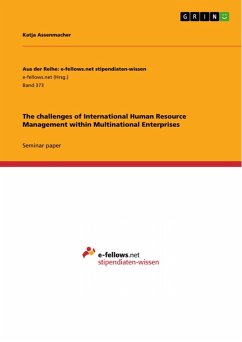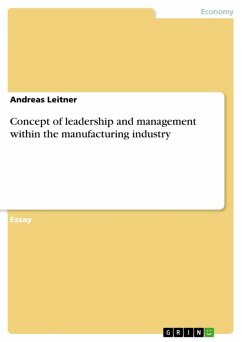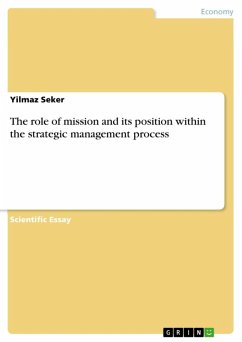Seminar paper from the year 2011 in the subject Business economics - Business Management, Corporate Governance, grade: 1,2, Berlin School of Economics and Law (Institut of Management Berlin), course: MBA Seminar, language: English, abstract: An organization's accomplishments are determined by factors within its internal and external environment. A business can increase its success by implementing strategies which influence these factors to its advantage. A successful organization will not only be aware of these existing factors but also anticipate change and evaluate likely effects, so that it can benefit from changes within the environment in which it operates and apply growth strategies. Understand today, shape tomorrow - would be an accurate summary in this correlation. Environmental analysis will facilitate understanding what is happening both inside and outside a company or branch while this knowledge is exploited to ensure economic success. In order to execute an environmental analysis, one must systematically understand how organizational environments are structured. An organization's environment can be divided into three distinct levels: internal environment, operating environment and general environment. This division will help to grasp a company's situation. Micro-environmental factors are internal conditions the organization can control, external factor are complex to manipulate. In the following, two of the most common environmental analyses will be carried out and explained, the first being the PESTEL Analysis, and second tool for an external factor analysis is the SWOT analysis. Both will be elaborated in the following chapters.
Dieser Download kann aus rechtlichen Gründen nur mit Rechnungsadresse in A, B, BG, CY, CZ, D, DK, EW, E, FIN, F, GR, HR, H, IRL, I, LT, L, LR, M, NL, PL, P, R, S, SLO, SK ausgeliefert werden.









